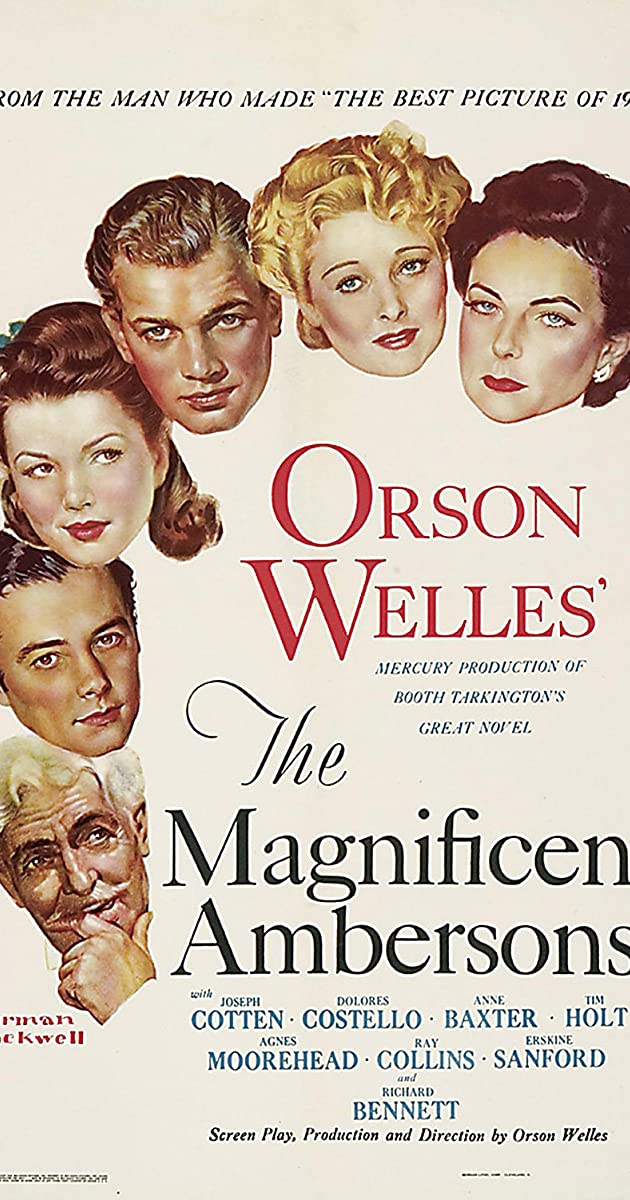The Magnificent Ambersons (1942)
3

The spoiled young heir to the decaying Amberson fortune comes between his widowed mother and the man she has always loved.
Director: Orson Welles
Writer: Booth Tarkington, Orson Welles
Stars: Tim Holt, Joseph Cotten, Dolores Costello
Studio: RKO Radio Pictures
Genre: Drama
Following his monumental classic, Citizen Kane, visionary director Orson Welles attempts to adapt Booth Tarkington's Pulitzer Prize winning novel. The Magnificent Ambersons marks a stark contrast from Kane as Welles was stripped of his creative control and had the studio massively recut the movie by removing an hour of content, as well as changing the ending. It was nominated for four Academy Awards, including Best Picture and, while seen as lesser than Kane, is still considered to be one of the greatest films of all time by critics. Financially, however, the film was unable to earn back its budget at the box office, further stripping Welles of any creative control in the future.
I did not like this film at all. It revolves around the drama of a rich family over the course of many years, with many interesting relationships being established. I especially liked the dynamic the jealous aunt brought by trying to manipulate events from behind the scenes. However, I could not be brought to care about any of the actual drama between family members. I realize we as an audience are not supposed to like the main protagonist Georgie, but even still I could not bring myself to really empathize with the mother or Eugene characters. Everybody was just too rich and too bland for me to really care about any of them. To me, this film resembled Frank Capra's 1938 You Can't Take it With You, only instead of being overly optimistic and sappy, Ambersons was needlessly dark and uninteresting. By the time things start to get interesting with the family having to adjust to their new-found impoverished state, the film ends. I will also say that I did really enjoy Georgie's comeuppance and how that was handled. I do think it is a fine tale, just not one that I have the remotest interest in.
Technically, the film is another knockout for Welles. The production design I found to be much more "full" and immersive as opposed to Kane. The cinematography was once again stellar, and the editing was a little quirkier, but in a good way. I also particularly liked how Welles read out the credits at the end similar to how a radio production would do things. I for one wish this style of credits had caught on more. But like I said, the story does not interest me. Welles can make the most technically perfect film possible, but if I can't bring myself to care about a bunch of squabbling rich people, I'm not going to enjoy this kind of film. I would have liked to see Welles' cut of the film before the studio got to it. Maybe there was more character stuff in there that helped audiences empathize with the characters more. But in its current state, I cannot recommend this film to any regular moviegoer.